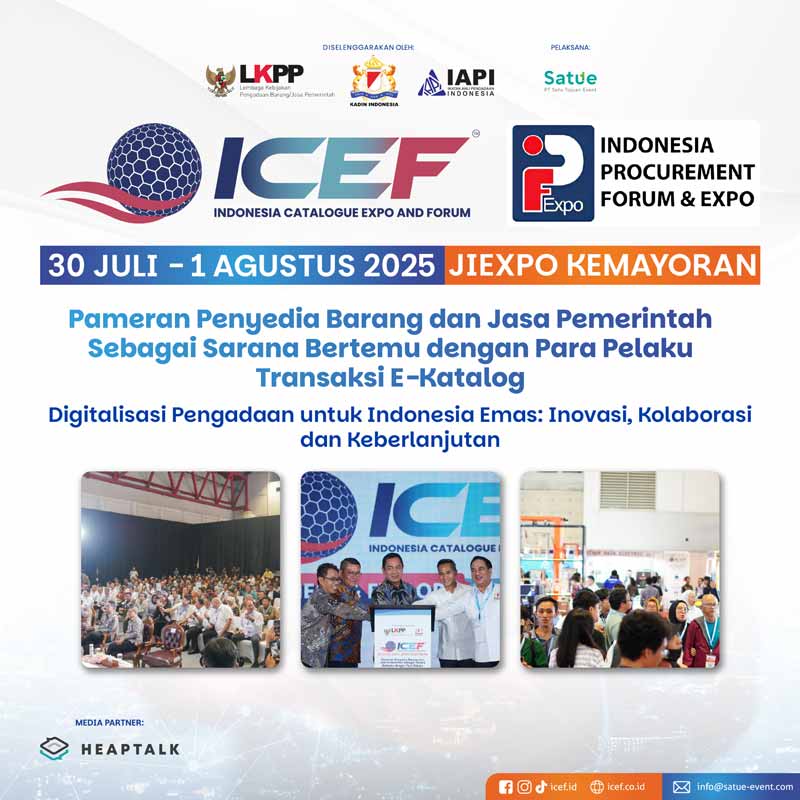Heaptalk, Jakarta — Following Apple’s additional investment, Indonesia’s government has confirmed the receipt of a proposal from Apple detailing its intention to invest USD100 million, equivalent to Rp1.58 trillion, over the next two years.
This revised investment plan marks a tenfold increase from the company’s earlier commitment of US$10 million or around Rp158 billion, which was earmarked for establishing a factory for accessories and components in Bandung, West Java.
As the Industry Ministry spokesperson conveyed, Febri Hendri Antoni Arif, “The Ministry of Industry received Apple’s investment proposal dated November 18, 2024, on November 19, 2024. We deeply appreciate Apple’s commitment as outlined in the proposal.”
Furthermore, the ministry swiftly responded to the proposal by scheduling a leadership meeting (Rapim) for Thursday morning (11/21) to evaluate Apple’s revised investment plan. “This demonstrates Minister Agus Gumiwang Kartasasmita’s strong support for Apple’s commitment to investment. The proposal will be thoroughly discussed during the meeting,” he added.
Domestic Content Regulation (TKDN) fulfillment
While welcoming Apple’s increased investment, the Ministry of Industry stressed the importance of fulfilling the requirements stipulated under Indonesia’s Domestic Content Regulation (TKDN). This regulation is governed by Ministry Regulation No. 29 of 2017, which specifies the criteria for calculating domestic content in products such as mobile phones, handheld computers, and tablets.
Under these rules, TKDN can be achieved through three mechanisms: domestic production or factory establishment, application development in Indonesia, or fostering innovation within the country. Previously, Apple opted for the innovation route by establishing Apple Academies in BSD Tangerang, Batam, and Surabaya. Despite this measure, Minister Agus Gumiwang Kartasasmita recently revealed that the iPhone 16 cannot yet be sold in Indonesia, as Apple still falls short of the required TKDN threshold.
“I observed a funding gap of around USD15 million, equal to Rp240 billion. If Apple fulfills this gap, the company will reach the 40% TKDN required for product importation,” the Minister explained.
In response to the Minister’s statement, Febri delivered that compliance with TKDN is critical for ensuring fairness among investors and creating value within Indonesia’s industrial structure. As is known, Apple’s investment in Indonesia has significant implications, given the country’s position as Apple’s largest market in Southeast Asia, with 2.61 million units sold in 2023. This is substantially higher than Vietnam, which recorded only 1.43 million units.
Instead of proposing strict stipulations for Apple, Indonesia also applied standards similar to those of other global tech giants, such as Alphabet, Google’s parent company. Alphabet’s Google Pixel 9 remains prohibited from entering the Indonesian market due to insufficient investment to meet TKDN requirements.
Indonesia’s govt key demands for Apple
The Indonesian government, through the Ministry of Industry, in particular, has outlined three critical conditions to align Apple’s contributions with national objectives:
- Establishing a Research and Development (R&D) Division: unlike the Apple Academies, this R&D division is expected to advance innovation and industrial growth in Indonesia.
- Integrating Indonesian companies into Apple’s Global Value Chain (CGV): This measure is expected to boost greater cooperation and economic benefits.
- Enhanced investment to bridge the TKDN gap: Apple must fulfill its earlier commitment to invest US$18.8 million, or around Rp300 billion, to meet TKDN policy.














